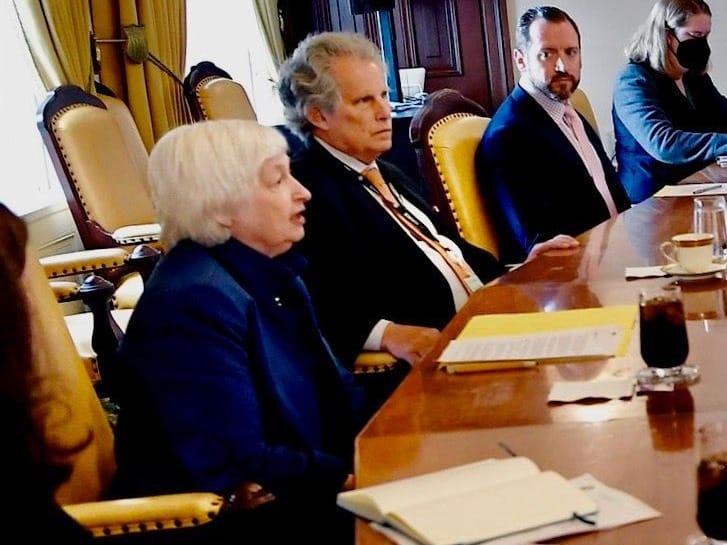Finance ministers from the Group of Seven wealthy industrialized nations agreed on Friday to impose a price cap on what importers pay for Russian oil in an effort to undercut the Kremlin's energy profits that pay for its war on Ukraine.
U.S. Treasury Secretary Janet L. Yellen pushed the plan, which she says will be put in place "in the weeks to come," as a way to deliver a major blow to Russia's finances and to hinder its ability to fight in Ukraine, without creating disruptions to the global economy that could lead to future price spikes.









